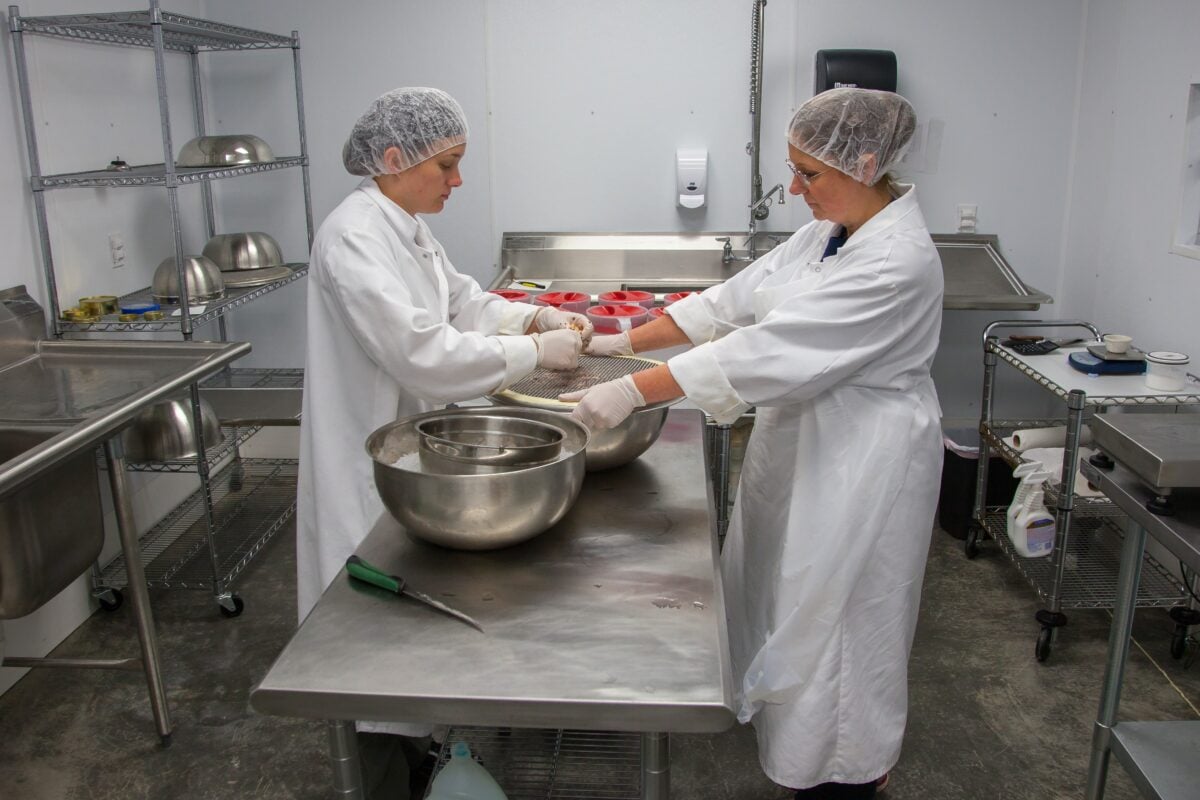Environmental Health Visits and Officers are responsible for inspecting food businesses to ensure they follow environmental health laws. All food businesses in the UK must observe and follow food hygiene laws, as enforced by the local authorities.
EHOs are subject to inspection and analysis of your business’s food processes, from food preparation to cleanliness, staff knowledge, and overall standards of food. Businesses can be inspected at any point in time without any warning of the visit.

Environmental Health Visit Purpose
The main purpose of an Environmental Health Visit is to ensure that food businesses maintain, follow, and meet requirements set by The Food Safety Agency. Inspections are carried out using the FSA Food Hygiene Rating Scheme, which will award your food business a star between 0-5 after the examination. A score of 0 will result in serious action, including the risk of closure.
Today, we will run through how to prepare for an Environmental Health visit and what to expect.
EHO inspection: Who are they?
EHOs are recruited by the local authorities to inspect food businesses across the UK. They carry out health and safety checks, food hygiene, and other standard checks such as allergen information at any point within the distribution and food production process.

When can an EHO visit your food business?
An Environmental Health Officer can inspect your premises at any time without warning, it is a legal obligation to allow them to enter and inspect.
The frequency of visits depends on:
- If your business has previously had a low rating,
- If the local authorities received a complaint about your business,
- The length of time your business has been open,
- If your food business is due for a routinely six-month visit and,
- It is possible an EHO is conducting checks close by and decides to check-in sporadically.
They may contact in advance to set a time, but they will come unannounced most of the time.

What to expect from an Environmental Health Visit?
The role of an environmental health officer is to look at:
- How food is labeled, including correct allergen information and product descriptions,
- Cleanliness of appliances and equipment maintenance,
- Methods used for preventing cross-contamination,
- Personal hygiene practices in the workplace, ensuring staff are knowledgeable and follow correct health and safety procedures,
- Pest control checks and methods, checking if staff know how to identify and deal with pests,
- Storing methods and temperature control,
- Condition and structure of the business,
- How clean the building facilities are including lighting and ventilation,
- How food is prepared, cooked, re-heated, cooled, and stored,
- Cleaning schedules,
- How you record food safety and what criteria you have in place to keep food safe.
What actions can EHOs legally take?
If an Environmental Health Officer believes that your business may put public health at risk and is not complying with Food Safety requirements, they have the power to:
- Remove food that does not fit food regulations,
- Inspect the property,
- Hand out a notice.
There are two types of notices that may be handed out:
- A Hygiene Improvement Notice will be given to your business if something fails the environmental health visit inspection and standards set by the law. The notice has a set date for when the improvements need to be completed. Businesses that do not comply with the food safety laws and improvements within the time given could face prosecution, fines, and even closure.
- Emergency Hygiene Prohibition Notice will be given if there is an immediate high risk of harm to customers, which intends to shut down your business due to failed health and safety regulations.
In these circumstances, the business will be closed until the improvements are deemed acceptable by EHOs.

Advice for being prepared for an Environmental Health Visit (EHV)
Have at least one staff member trained in food safety management on the property to be prepared if an unexpected visit from Environmental Health occurs.
Further steps you can take to be compliant:
- Have up-to-date Food Safety Management Documentation,
- Check food storage and preparation areas,
- Clean the premises thoroughly.
Can Environmental Health officers issue on-the-spot fines?
No. Although, they can sample food products, take photographs and videos, ask staff questions and inspect the property and all records related to the inspection, such as cleaning records, staff training records, allergen information, and supplier information.
How to achieve a 5-star rating:
- Maintain clean and safe food hygiene process,
- Train staff to a competent level of food hygiene and preparation,
- Keep cleanliness records up to date,
- Hygienic food preparation.

Environmental Health Visits are necessary to provide a clean, healthy, hygienic workplace to reduce risks to public health from allergens and errors.
Businesses should follow best hygiene practices, train staff accordingly, complete cleaning records, and stay on top of cleanliness as EHOs can arrive at any point.
LiberEat - Allergen Error Detection Software
Food allergen rules and regulations continue to change and evolve. Food businesses in production, hospitality, catering, and retail must be vigilant when working with ingredients, products, and dishes containing allergens and exercise due diligence when providing ingredient and allergen information to consumers. Successful allergen management is a big part of Food Safety professionals creating a culture of care and excellence within their teams.
LiberEat offers a second line of defence for food businesses by detecting errors, allergens, and other harmful ingredients with our proprietary Allergen Detection Software. Food businesses can apply this technology directly to identify errors in allergen communications, preventing the risk of injury to consumers. Contact us today to learn more about how we can support your existing food safety processes.
LiberEat works closely with food businesses to ensure consumers are safe and healthy when consuming your produce.

